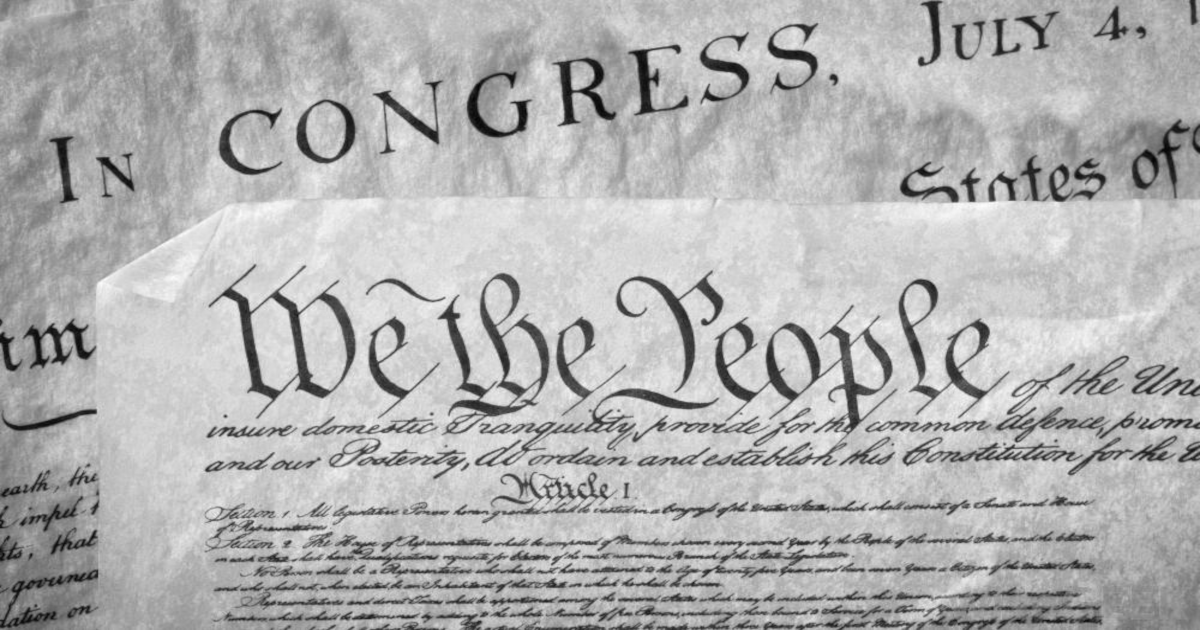Deposited Authority Part 4
© 04.14.21 By David Eric Williams
 So far in this series, we have discovered that God deposits the authority to rule among men in specific people, institutions or documents. For instance, God commanded the wayward people and king of Judah to submit to Nebuchadnezzar, the Emperor of Babylon. Much of the first century world looked to Caesar as the locus of authority – regardless of who occupied the position. In these United States, the authority to rule rests in our National founding documents and the various states.
So far in this series, we have discovered that God deposits the authority to rule among men in specific people, institutions or documents. For instance, God commanded the wayward people and king of Judah to submit to Nebuchadnezzar, the Emperor of Babylon. Much of the first century world looked to Caesar as the locus of authority – regardless of who occupied the position. In these United States, the authority to rule rests in our National founding documents and the various states.
We have also found the belief that Christians should always and everywhere obey civil authorities is based upon a faulty understanding of Romans chapter thirteen. Even the Apostle Paul – author of the epistle to the Romans, showed that view is unbiblical. When Paul stood in the court of Festus, Procurator of Judea, he did not meekly accept his ruling. Instead, he rejected the Procurator's decision and appealed to Caesar. Many modern Christians ignore Paul's example (and other examples found in the Bible) and insist that it is a Christian's duty to obey civil authorities – even when their ruling is contrary to sound civil polity. For instance, if the National or State civil authorities demanded every citizen hand in their guns, plenty of folks who call themselves Christians would willingly comply. Indeed, they would most likely mask their lack of understanding with pious words such as “God will protect me – not a gun.” While that may be true, it ignores our Christian duty to submit to the locus of God's deposit of authority in this land; the National and State constitutions. As Paul's example shows us (along with the example of Jehoiada and others), when a magistrate ignores the locus of authority, it is incumbent upon the followers of God to stand against the wayward civil ruler.
The primary reason many Christians do not understand that their civic activities must be under the authority of Christ is a lack of solid Bible teaching on the subject. As we saw in a previous article, it was the norm in colonial America and the early National era for Church leadership to teach political theory from the pulpit. Regardless of the sources used by the Founding Fathers in crafting the United States Constitution, their thinking was deeply affected by the Bible. Christian and Deist alike learned much of their political theory from the Clergy.
Thus, twenty-first century Christians need to get past the error of placing politics outside the authority of King Jesus. It is foolish - and cowardly - to circumscribe the words of Christ in any way. For Jesus said, All authority has been given to Me in heaven and on earth. Go therefore and make disciples of all the nations, baptizing them in the name of the Father and of the Son and of the Holy Spirit, teaching them to observe all things that I have commanded you; and lo, I am with you always, even to the end of the age (Matthew 28:18-20). All authority, with a demand to make disciples of all nations, teaching them to obey Jesus. And to obey Jesus is to obey the Bible.
We will conclude this series next week with examples of specific actions Christians can take in these chaotic times.
Click Here For The Fifth Article In The Series
Entire Site Copyright © 2025 By David Eric Williams










